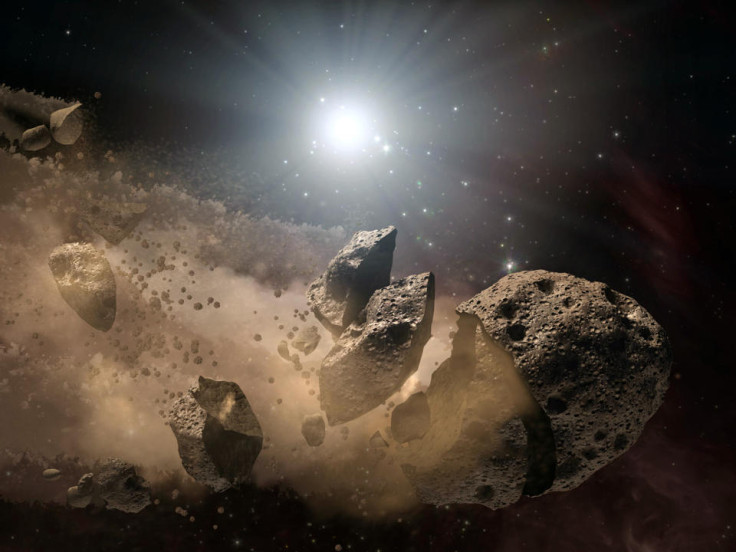Massive asteroid on collision course with Earth warn Russian scientists

A gigantic asteroid called 2014 UR116 could be heading for Earth, causing catastrophic damage if it makes impact with the planet.
The warning comes from Russian scientist Vladimir Lipunov, who discovered the mountain-sized asteroid whose orbit crosses the Earth's every three years.
Speaking in a documentary Lipunov said "We should track it constantly. Because if we have a single mistake, there will be a catastrophe.
"The consequences can be very serious."
Lipunov, a professor at Moscow State University, announced the discovery of 2014 UR116 in a short film, Asteroid Attack, posted on the website of the Russian Space Agency.
The scientist says the asteroid is 370 metres in diametre, and could hit the Earth with an explosion 1,000 times greater than the 2013 impact of Chelyabinsk meteorite.
The enormous space rock entered Earth's atmosphere over the Russian city of Chelyabinsk, resulting in a series of ferocious blasts that blew out windows, damaged buildings and injured over 1,400 people.
The Russian scientist and his team have fears that the gravitational pull of Mercury or Venus, could put it on a collision course with Earth.
Other space experts disagree with Lupinov, saying there is no immediate threat of collision.
Nasa stated on their website: "While this approximately 400-meter sized asteroid has a three year orbital period around the sun and returns to the Earth's neighborhood periodically, it does not represent a threat because it's orbital path does not pass sufficiently close to the Earth's orbit."
Phil Plait of Slate magazine dismissed people who believe in an imminent impact from the asteroid as "breathless conspiracy theorists."
He added: "Over the next century or so the orbit doesn't bring it any closer than about 5 million kilometers or so. That's a pretty wide margin, well over 10 times the distance to the Moon."
However, very little is known about asteroids and their unpredictable orbits, and the trajectory of 2014 UR116 cannot be determined with total certainty.
Scientists at the Space Research Institute in Moscow have advised governments around the world to take steps to track the many asteroids that pass by the Earth each year.
A group of former Nasa astronauts outlined "26 explosions on Earth ranging from one to 600 kilotons," all of them caused by asteroids.
The astronauts, and their company, the B612 Foundation, aim to put a new satellite in orbit to monitor deep space for incoming asteroids that could cause devastation, and deflect them before they reach planet Earth.
© Copyright IBTimes 2025. All rights reserved.






















